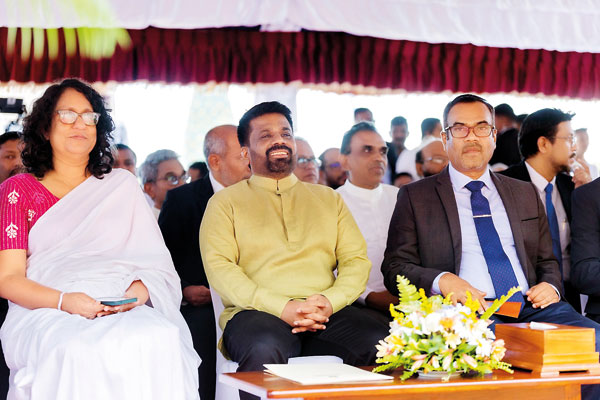Sunday Times 2
Smart Cities and Clean Sri Lanka: A shared vision for a sustainable future
View(s):By Mihiri Wickramasinghe
Sri Lanka stands at a crossroads, where rapid urbanisation demands innovative solutions to ensure sustainable development. The Clean Sri Lanka initiative, launched on January 1, 2025, aims to address pressing environmental challenges while fostering socio-economic and ethical growth. This vision aligns closely with the objectives of Smart City initiatives, which leverage technology to enhance urban living. Together, these programmes hold the promise of transforming Sri Lanka into a cleaner, smarter, and more inclusive nation.
The urban challenge
Urbanisation has reshaped the global landscape, with cities accommodating 56 percent of the world’s population. By 2050, this figure is expected to rise to 70 percent, posing significant challenges to infrastructure, environmental sustainability, and quality of life. Sri Lanka is no exception. While urban centres drive economic activity, they also face issues such as waste management, traffic congestion, and resource scarcity.
The Clean Sri Lanka project directly tackles these issues through its pillars of environmental, economic, social, and governance sustainability. However, achieving these ambitious goals requires citizen awareness and participation—a focus echoed in Smart City initiatives.

The launch of the government's ambitious Clean Sri Lanka initiative
Citizen participation: The heart of smart cities
My recent research highlights the critical role of citizen awareness and engagement in the success of Smart City projects. Access to information and communication technologies (ICT), digital literacy, and community involvement are key drivers of awareness. When citizens understand the benefits and working of Smart City initiatives, they are more likely to participate actively.
For instance, providing widespread access to ICT empowers citizens with the tools to engage with digital services and urban planning platforms. Similarly, enhancing digital literacy ensures that people can navigate and utilise these technologies effectively. Community engagement creates a sense of ownership, fostering collaboration between residents and policymakers.
Lessons for Clean
Sri Lanka
The Clean Sri Lanka project can draw valuable insights from Smart City research. One key finding is the need for transparent communication to address public concerns. While perceived benefits such as economic growth and environmental improvements are critical motivators, they are not always enough. Citizens often weigh these benefits against potential risks, such as privacy concerns or unequal resource access. Therefore, addressing these apprehensions through open dialogue and inclusive planning is crucial.
Another lesson is the importance of education and capacity building. Digital literacy campaigns and community workshops can empower citizens to participate in Clean Sri Lanka initiatives. For example, teaching residents about waste segregation or energy-efficient practices can amplify the project’s impact while fostering a culture of sustainability.
Bridging technology
and tradition
Sri Lanka’s unique cultural heritage provides an opportunity to blend technological innovation with traditional practices. Smart city technologies, such as IoT-based waste management systems, can complement grassroots efforts like community-led cleanups. Similarly, the Clean Sri Lanka project’s emphasis on ethical values aligns with the human-centred approach of Smart Cities, where technology serves the people. Not the other way around.
A call to action
Both the Clean Sri Lanka project and the Smart City initiative rely on one fundamental element: the active participation of citizens. Policymakers must prioritise accessibility and inclusivity to ensure no one is left behind. As a nation, we must embrace a shared vision of sustainability, where technology advancements and ethical commitments go hand in hand.
In conclusion, the synergy between Smart City initiatives and the Clean Sri Lanka project offers a roadmap for sustainable development. By fostering awareness, engagement, and innovation, we can create urban spaces that are not only smart and sustainable but also deeply rooted in our cultural values. Together, let us pave the way for a cleaner, smarter Sri Lanka—one where every citizen has a role to play.
(The writer is a senior lecturer at the Rajarata University.)

